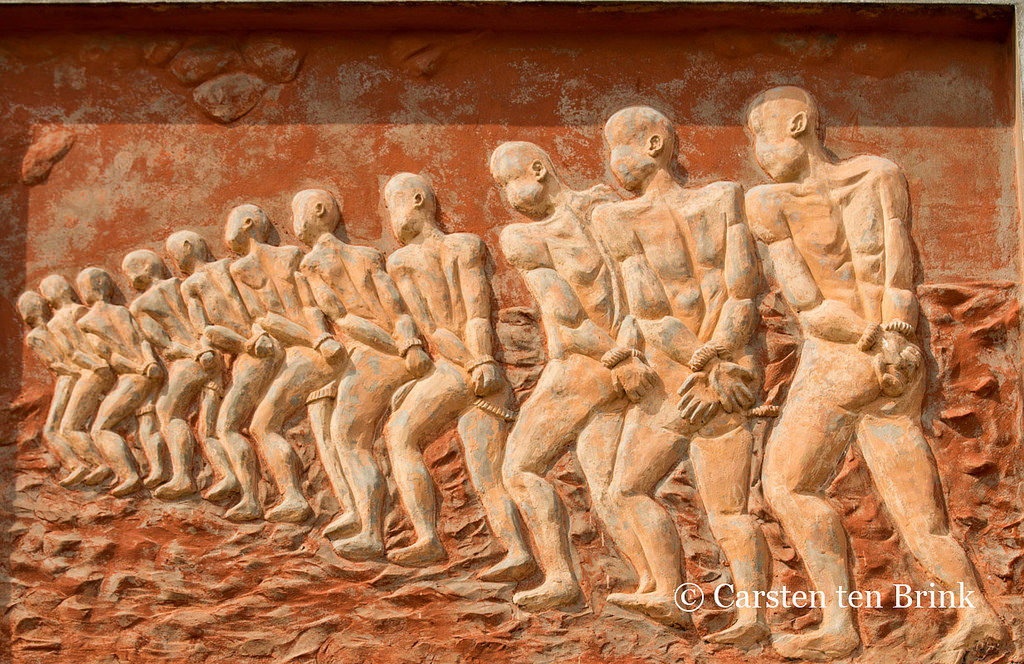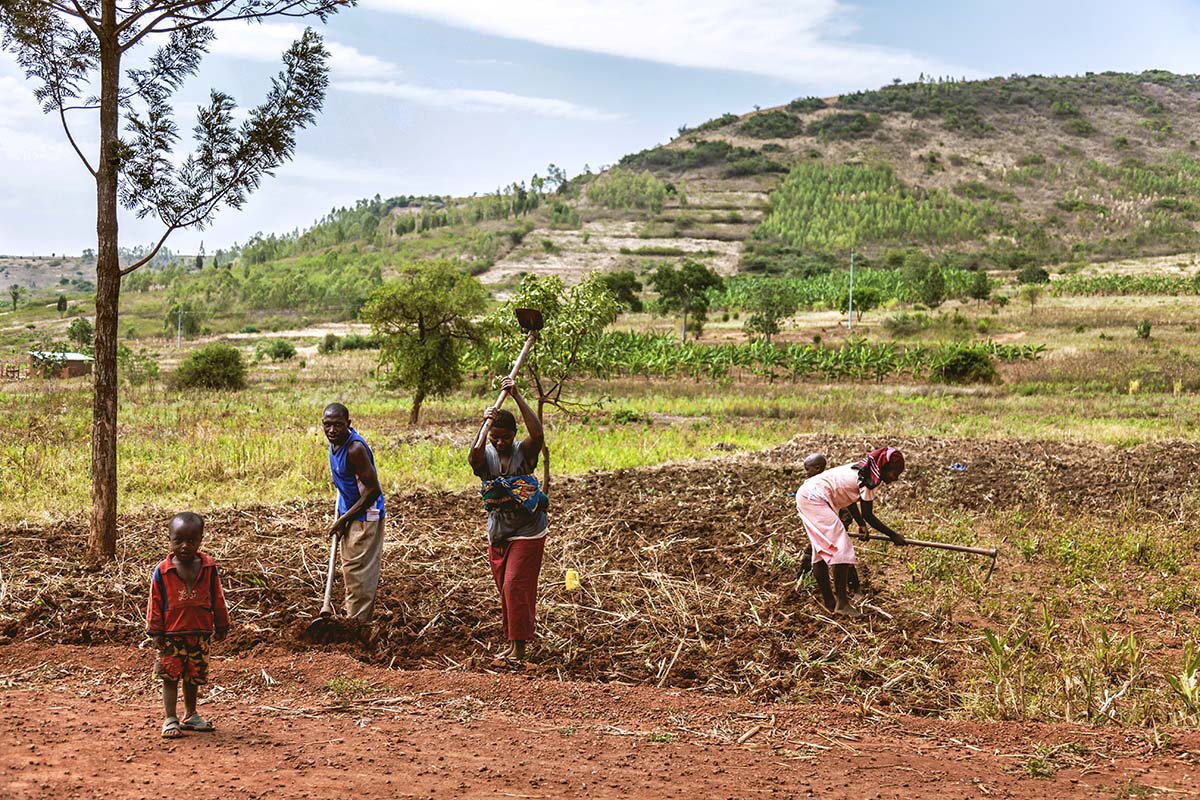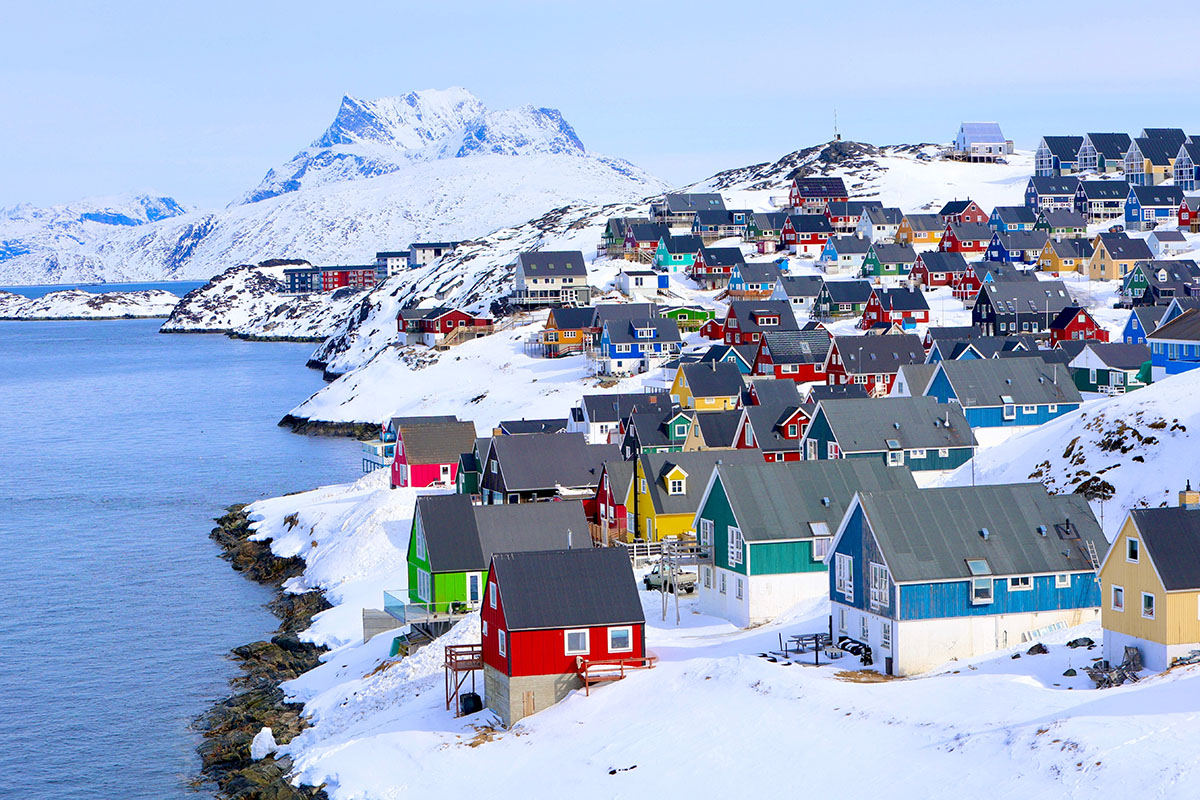“Modern day slave trade a blight on Africa”
December 13 Colonialism is an indelible blight that blemishes the racial evolution of the peoples and cultures of Africa, writes Ope Adetayo, 19, a Commonwealth Correspondent from Lagos, Nigeria. The debasement of dignity it entailed now exists in a new form.
Colonialism is an indelible blight that blemishes the racial evolution of the peoples and cultures of Africa, writes Ope Adetayo, 19, a Commonwealth Correspondent from Lagos, Nigeria. The debasement of dignity it entailed now exists in a new form.
The pure evil of colonialism and slavery involved predatory interruption of African histories and the debasement of African dignity when people were prized from the continent during slavery.
This is an incontrovertible piece of history that will be taught till the end of time, that at a point in history, Africans were hounded and taken across the waters as slaves to other parts of the world. This precipitated an enduring legacy in the racial heterogeneity we have in countries across the world, especially in Europe and the Americas.
That was the diabolical notion of immigration at that time. We know; the whole world knows.
Fast forward to the 21st century, where borders are diminishing owing to the waves of globalisation that attend technological innovations starting from the 20th century, and immigration has become a divisive hot-button and a fundamental segue in the discourse of human movement. In the 21st century, where slavery is an anathema and a heinous crime against humanity, it is extremely unfortunate that we still have to discuss slavery – not as a part of history – but as a present issue.
The downturn of economic fortunes across the globe pushes victims to seek greener pasture elsewhere, hence the headache issue of illegal immigration. People are caught in the rubble of economic collapse, and the desperate need or instinct to escape provides incentive to the overwhelming desire to take a shortcut – even if remarkably dangerous. Nigerians are no exception to this pressure as they troop – illegally – to get a window into Europe, travelling through Libya to Italy. One is emotionally obliged to cringe at such perilous misadventure, but the outrage comes through a recent report that has emerged: It is not illegal immigration but a modern-day slave trade!
Horribly graphic pictures show Nigerians are being auctioned in Libya and sold into slavery. That is apparently the new punitive measure for immigration offences in the North African country. As testaments to this humanitarian crime surface in the news and on the internet, there comes deeper revelation of this barbaric practice which is totally unacceptable in all senses and all perspective.
Unlike colonialism, it is no longer a white-and-Black issue; it is no longer a case of racial dominance; it is a Black-and-Black issue that perhaps makes it more horrible and more terrifying. No human deserves to be subject to such indignity, even criminals.
The Libyan community that perpetrates this ring of slavery is a complete shame to the ‘African hospitality’ that Africans have been lauded to possess. The hostility is a textbook expression of the basest level a human can descend, and unfortunately, these are Blacks whose history has been discoloured with a facsimile of the very act they engage in.
This must mean that racial stereotypes are misguided and totally untrue. Whatever a white can be, it also applies to a Black and vice versa. What we must arrest is the worst side of humanity, which can be portrayed by anyone regardless of their classification. The very thing the world is witnessing in Libya is the worst side. Whatever was done in the 18th and 19th centuries is the very horrifying spectacle we are witnessing in Libya right now. The whites sold Blacks then, and now the Blacks sell Blacks.
The onus to arrest this development rests with humanity, because we must shut down our reversion into this relic of terrible history. But the first responders should be the Libyan and Nigerian governments, and the Africa Union. They must rise up and delve into the depth of this issue. We have been inundated with stale condemnations as people have marched in protests in Paris and Lagos, and as the internet is awash with the crucifixion of the yet-unknown elements behind this. Still, the continent needs concrete political action to tame this reverse of history.
I must acknowledge objectively that this scandal is just a pointer to the economic collapse that now characterises the continent. As the trend becomes worse, the solution cannot be a one-off, because this is a result of the gradual systemic collapse that we have known to be a part-and-parcel of an African country. But now that worse has become worst, the way forward is to look introspectively into the problem and provide political and economic solutions.
The African Union’s passive and somehow ineffectual posture to the scourges that plague the continent is becoming alarming. The institution must assert itself as a continental hope and lodestar. This is an instance where it must act decisively, otherwise, we are bound for a more grievous phase in the history of human desperation.
Reach me on Twitter @Opeadetayo1
Photo credit: 10b travelling Slavery relief via photopin (license)
…………………………………………………………………………………………………………………
About me: I am Ope Adetayo, an undergraduate of English at the University of Ilorin and a recipient of ‘Gold’ certificate at the 2017 Royal Commonwealth Society Awards for the Commonwealth Essay Competition. I enjoy indelible interest in journalism and literary writing, and am the author of Age and Blood, a play. I am passionate about politics and literature, and they are mediums where I propagate my ideas for a better society.
…………………………………………………………………………………………………………………
Opinions expressed in this article are those of the author and do not necessarily represent the views of the Commonwealth Youth Programme. Articles are published in a spirit of dialogue, respect and understanding. If you disagree, why not submit a response?
To learn more about becoming a Commonwealth Correspondent please visit: http://www.yourcommonwealth.org/submit-articles/
…………………………………………………………………………………………………………………




